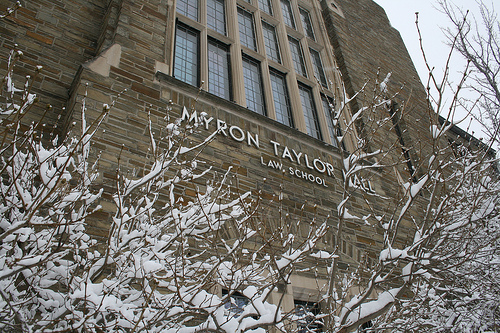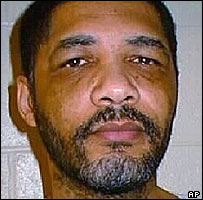
Have you ever wondered why we use Bluebook citation form for virtually EVERYTHING we do in law school? What makes the Bluebook so special, anyway, besides its mass? Mystyc Metrik gives you the inside scoop on legal citation.

This blog is on a one week hiatus following the conclusion of exams and the beginning of winter break for Cornell Law students. We will be back with regular Tuesday/Thursday posts starting next week.

Professor Cynthia Farina discusses how Cornell’s e-Rulemaking Initiative’s “Regulation Room” helps government get better public participation in writing new regulations

How a dictator’s son funds his lavish lifestyle in Bel Air while many of his country’s citizens lack access to clean water.

The Supreme Court recently heard oral argument in a case on First Amendment rights afforded to employees of churches and other religious institutions. Colin McKeon discusses some of the complexities of the case.

Mr. Krsna Avila describes how his view of himself as an American was shattered when he discovered his status as an undocumented immigrant. He describes how his status as an undocumented immigrant affected his emotions and his identity.

In 1986, the Supreme Court officially barred carrying out a death sentence on an inmate who had gone insane on death row—a rule that has long been part of the common law. Modern treatments are effective at eliminating many symptoms of insanity. So should we allow states to forcibly medicate inmates in order to execute them?

Would you be interested in seeing another law journal at Cornell? In this post, Mystyc Metrik describes some relative pros and cons of both the traditional student-edited law journal and peer-reviewed journals.

Crossing the border, underage and unaccompanied, and the implications on human rights. Aryah Somers discusses the politics and human rights issues stemming from the migration of immigrant children.

If you’ve poked around the internet the past month, you might have come across the image below. The meme juxtaposes two news articles to highlight the questionable retributive values behind American criminal law. But some people are crying hoax about this viral phenomenon—are they correct?